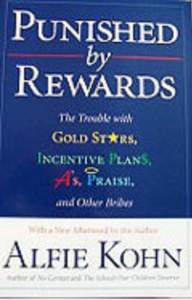Post edited most recently on May 7, 2013
DISCLAIMER: On this website and in my blog posts, I offer nothing more than expressions of opinion and general information, which could be inapplicable to your situation, out-of-date, and/or incorrect. No statement on my website or blog posts is intended to guarantee any particular outcome for you, or to constitute any kind of advice. “Advice” is meant to be customized to your particular circumstances, current, accurate, and offered in direct relationship by a qualified professional. I do offer legal advice, but only within the context of attorney-client relationships, which are formed exclusively via written attorney-client fee agreements, not through blog posts, website pages or communications, your communications with me (via post comments, my contact page, or otherwise), or any other means whatsoever.
There are so many reasons I decided to start a “sharing law” practice.
But, first, what is “sharing law”? Sharing law is a concept created originally by a fellow attorney, Janelle Orsi.
It’s about helping clients create entities and other arrangements that promote the sharing of power, income, labor, and personal, real, and intellectual property.
That said, my emphasis is on helping people share in ways that I believe can help promote what I’ll call “Resource Based Economy values” (RBE values; for more on why, and what an RBE is, see farther down in this post). That is, I focus on helping those who want to promote:
- Sharing with the public at large, rather than just within narrow, privileged groups of people;
- Sharing via voluntary gifting, rather via money, demand, and/or exchange-based interactions;
- Sharing though non or minimally hierarchical structures; and
- Sharing in optimally labor-saving ways, via use of safe and sustainable technology.
I’m talking about using legal tools to create everything from open source hardware and software groups, like Open Source Ecology, to higher-tech, public-sharing focused versions of 501(d) communities like Twin Oaks, which themselves share income and housing; from groups that assist in promoting RBE values, like Creative Commons, to land trusts that preserve land for the furtherance of these values; from local lending libraries that loan out such things as tools, phones, computers, and/or 3-D printers; to high-tech community gardens that offer food to all, free of charge.
But why?
First, I want to help people survive, and even thrive, through worsening economic conditions. My primary concern is that the US dollar may soon either collapse, or undergo hyper or near-hyper inflation. I expect this to result in either massive scarcity of dollars while wages plummet and unemployment skyrockets, or much higher prices for everything while wages remain stagnant and unemployment increases. In either case, I fear many, many more of us will experience conditions of extreme poverty. For background information on this topic, I recommend the books Currency Wars: The Making of the Next Global Crisis, by James G. Rickard, and Paper Money Collapse, by Detlev Schlichter, as well as a thirty minute radio show interview I conducted of my husband, self-taught currency expert. You can listen to this interview by clicking on the icon to the left.
I believe sharing law could help people through such economic challenges, and hopefully ultimately into a totally different economic system. My current favorite idea for a new economic system is a “Resource Based Economy” (as the Venus Project envisions it, with some caveats that I’ll discuss in a future blog post, such as governance via a hybrid direct democracy/meritocracy). For a brief outline of the Venus Project’s vision, check out the video to the right.
Second, for many, many reasons, I want to live in a world where we all treat each other like family.
What do I mean by “treat each other like family”?
When it’s dinner time at my house, we don’t charge each other for our contributions to meal-making. We give and receive freely.
In that kind of environment, I believe we could all relax, thrive, and maximally contribute in every way to others.
It turns out, contrary to common belief, humans are motivated to contribute most when they have their needs met as a given, and they are simply seeking purpose, mastery, or autonomy (at least when it comes to motivation to do anything beyond the most rudimentary tasks which, in this day and age, could all be automated). For a short animated video outlining the studies supporting this finding, look to the left.
When are needs are met by default, the “purpose” that we often seek is others’ well-being, out of empathy. Empathy is when we feel what others are going through. To learn more about the evidence for empathy being our natural state, check out the video to the right.
Humans don’t contribute as well, by contrast, when individuals needs only get met unequally and/or contingently.
When people have their needs met unequally, none of us can contribute as well. For example, the more unequal a society, the more people suffer from mental disorders such as chronic anxiety (see link below), which can interfere with the full functioning of the neo-cortex. The neo-cortex contains the area of a the brain that empathizes with others, and can motivate contribution to others out of that empathy. For more about empathy and the neo-cortex, see the above left video, and the book Mindsight, by Dr. Daniel Siegel. Indeed, evidence suggests that one of our more basic needs is equality. And it’s a need which is sorely unmet in the United States especially. For a 16 minute TED video describing recent studies about how critical equality is to public health, and implicitly critical to human abilities to contribute fully, across the income spectrum, click here.
 And when our system only meets people’s needs contingently, we can’t contribute as well either. That is, when our system operates by holding out the carrot (or “reward”) of meeting our needs only if we participate in certain ways in our economy, and the stick (or “punishment”) of letting our needs go unmet otherwise, our ability to contribute is negatively impacted, and other unwanted outcomes occur as well. Hundreds of studies show that punishments and rewards both result in lower levels of creativity and innovation. They also result in lower levels of retention, interest and enthusiasm, and either rebellion on chronically anxious compliance, all of which negatively impact quality of contribution, as well as quality of life. For details, see the book Punished by Rewards, by Alfie Kohn, and click on the book’s image to the right to read more about it.
And when our system only meets people’s needs contingently, we can’t contribute as well either. That is, when our system operates by holding out the carrot (or “reward”) of meeting our needs only if we participate in certain ways in our economy, and the stick (or “punishment”) of letting our needs go unmet otherwise, our ability to contribute is negatively impacted, and other unwanted outcomes occur as well. Hundreds of studies show that punishments and rewards both result in lower levels of creativity and innovation. They also result in lower levels of retention, interest and enthusiasm, and either rebellion on chronically anxious compliance, all of which negatively impact quality of contribution, as well as quality of life. For details, see the book Punished by Rewards, by Alfie Kohn, and click on the book’s image to the right to read more about it.
Just take a look at our society. People suffer from pervasive anxiety about whether they have “enough,” which leads to behavior many label as “greedy,” resulting in a “stop at nothing” approach, the take-over of our political system by the wealthy and powerful, a banking system where bankers create money out of nothing and charge the rest of us interest for that service (see the Money as Debt documentary series), and an increasing and incalculable loss of human fulfillment and potential that hurts us all. In addition, most crimes are, directly or indirectly, a product of people seeking money. And, in their frantic scramble for an ever-illusive sense of security, people are motivated to convince us to buy things we don’t need, and budget and design those things to break quickly, which creates waste and perpetuates poverty. And on it goes.
And it doesn’t need to be this way . We can have optimal human fulfillment as a given, and optimal productivity. Indeed, as indicated by the research I alluded to above, these things actually go together perfectly, when needs are met by design. Not only is technology at such a state that we could meet all human needs, with little to no human labor, but if we set up our system to do this, whatever human labor we did need would be of higher quality, due to the phenomena I discussed above.
With a sharing law practice, I hope to help clients make their economic lives look more like their family lives – places where equality, and met-needs are the norm. Sharing “stuff” allows us to meet more needs overall, with fewer resources. Sharing power and income allows us to reap all the public health benefits of equality. And sharing intellectual property helps us innovate more rapidly and get the bounty of that sharing to more and more people who would otherwise go without. See the book No Contest, by Alfie Kohn, to get a better idea of how much more effectively we can produce when we collaborate rather than compete, and read about the open source software movement to see understand more about how this has in fact happened in practice.
Regarding sharing stuff, for example, in one housing community with 84 adults, they share just 18 cars and car-related errands.
The result?
Multiple car options are available for each adult’s use, they don’t need to drive as often to get their errands done, they live in a state of equality, and much less money and time is required to support their transportation needs. For a video about this community, a somewhat “low-tech” version of the kinds of 501(d) communities I’d like to help form, look to the left.
Another big reason that I’m practicing sharing law, is because I want to help idealistic young people, like the many I met in my months volunteering for Occupy Sacramento. I want livelihood options for them that don’t involve the traditional path of acquiring massive student loan debt, then being tempted to opt for corporate jobs that take all the oxygen out of their once hopeful hearts and minds.
Now, I’m under no illusion that I’ll change the whole world with my sharing law practice. But practicing sharing law meets my needs for contribution to development of the kind of world I hope to see, and for human well-being along the way. And, given my particular skill set, practicing sharing law feels like a way I can uniquely contribute to this end.
Tiffany Clark, is an attorney working and living in Sacramento, CA, with her beloved husband, two sons, cat and dog. You can find out more about Tiffany at www.tiffanyclarklaw.com.
